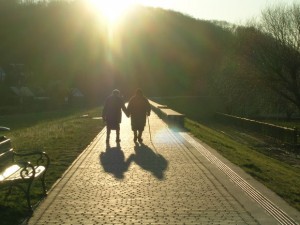 OKLAHOMA CITY — Officials in Oklahoma City have come under fire surrounding their plan to purchase or lease church property to establish a new state-of-the-art senior wellness center.
OKLAHOMA CITY — Officials in Oklahoma City have come under fire surrounding their plan to purchase or lease church property to establish a new state-of-the-art senior wellness center.
The effort is part of a Metropolitan Area Projects (MAPS) 3 initiative, and will encourage seniors in the city to take proper care of their health, as well as serve as a meeting place for the elderly to fellowship. The city plans to either lease or purchase a portion of the Putnam City Baptist Church to establish the senior center, which will be run entirely by a secular organization called Healthy Living.
However, the ACLU of Oklahoma warned members of the Oklahoma City Council that there could be legal ramifications for utilizing church property to open the center, as some of the current arrangements might violate the Establishment Clause of the U.S. Constitution.
“A partnership between the city and a religious organization is not a violation of the First Amendment, but after reading through the proposal, it’s apparent several items blur the line between the separation of church and state,” said Executive Director Ryan Keisel. “It gives the impression the city is endorsing the religious mission of Putnam City Baptist Church.”
Among other items, Keisel expressed concerns over the proposed hiring guidelines, which he stated could entangle the sacred with the secular. He asserted that homosexuals and transgenders could be turned away because of their lifestyle choices.
“That could result in a lack of equal employment opportunities for people who don’t believe as they do,” Keisel said. “We have serious concerns the proposal would not explicitly protect against discrimination or promote equal opportunities for many people, including people of different faiths or people of the same faith who might be from a different congregation.”
He also explained that it was his understanding that Bible studies may be offered at the facility and that some church members might volunteer their time at the center.
However, to counter the ACLU, the Liberty Institute, a Christian legal organization in Plano, Texas, sent a letter to city officials contending that the plan was constitutional.
“[C]ontrary to the ACLU’s alleged concerns, there is no ‘partnership’ between the City and the church or any other religious organization,” the letter stated. “The City’s partnership is with Healthy Living, not the church. Moreover, the relationship between Healthy Living and the church would not cause excessive entanglement between church and state. The mere fact that the City endeavors to lease or purchase a portion of the church’s property does not create an Establishment Clause violation under the First Amendment to the United States Constitution.”
It advised that there should be no worries in moving forward–as long as the rights of the church are not violated in the process.
“Not only should the City proceed with its plan to use the church property for the senior wellness center, it must be careful to avoid acting against the church on the basis of religion,” the letter said, noting that the church may use the facility after hours. “The City cannot deny equal access to the church to use the senior wellness center because of the church’s religious character—doing so would be unconstitutional viewpoint discrimination.”
City Council is still in the decision and negotiation phase of the matter as it is considering exactly how the senior wellness center will be operated.
Become a Christian News Network Supporter...


